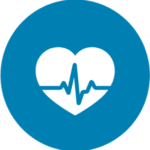-60%
Reduction in data platform costs including license, storage and computing
+750 ETL Jobs
Successfully repointed to Talend in production, ensuring minimal operational disruption.
3 Months
Migrated customer-specific ETL to Talend Cloud, streamlining onboarding and reducing complexity.
Get Ready to Started?
A New Era in Healthcare Analytics
This transformation journey is for a healthcare CRM, marketing automation and data analytics company that helps healthcare providers optimize their marketing strategies and improve patient engagement. They leverage data to drive insights and targeted marketing campaigns.
The integration and analysis from a variety of data and various sources such as marketing data captured in CRM systems, electronic health records, claims, and socio economic attributes, etc., enables healthcare organizations to gain a comprehensive understanding of their patient population, opportunities for patient engagement, and provider network insights to manage referral leakages.

Challenges: Complexity of Legacy Systems
Here are some of the challenges they faced, prompting the need for a platform modernization initiative.
The legacy system’s high cost of maintenance and updates, coupled with scalability limitations, hindered their growth potential. Additionally, the system’s performance resulted in slow data processing, making it difficult to deliver timely insights to customers.
Another was the lack of real-time data ingestion and serving capabilities. The legacy system struggled to handle real-time data streams efficiently, preventing the company from providing real-time analytics and updates through its API layer. Inconsistent data quality practices also posed a challenge due to unreliable analytics.
The company also grappled with a lack of central data governance and relied on customized data models and ETL processes for individual customers. This decentralized approach led to data silos, inefficiencies, and increased complexity when onboarding new customers.
Eon’s Approach: Clouds of Innovation
1. Assessment
Employing our methodology and tool, ADEPT, we embarked on the process with a comprehensive assessment of their data environment, which informs our migration and modernization strategy.
2. Cloud Data Platform Migration to Snowflake
We conducted a migration project, transitioning from their existing onsite database to the cloud-based Snowflake data platform hosted on AWS. We managed to migrate over 100 client production and non-production databases to Snowflake. We also repointed multiple internal and customer-facing applications to Snowflake, ensuring uninterrupted operations.
The project also involved migrating their previous data management, ingestion, and analytical applications to Snowflake, resulting in a more streamlined and efficient data ecosystem. A significant achievement was the establishment of real-time HL7/FHIR data feeds from customers using Redox, Snowpipe, and S3, allowing for the ingestion and processing of data in JSON models.
3. Implementing Talend Cloud
To address the challenges related to legacy ETL and data ingestion processes, the company adopted Talend Cloud, a cloud-based data integration platform.
We successfully repointed more than 750 ETL jobs to Talend in production, ensuring a smooth transition and minimizing disruption to operations. Migrating all customer-specific ETL code to Talend Cloud within three months further streamlined the onboarding process for new customers and reduced complexity.

Business Impact: Thriving in a Transformed Landscape
The implementation of modern cloud-based platforms brought about significant improvements in various areas:
Cost Optimization and Risk Reduction
The migration to Snowflake and Talend Cloud resulted in substantial cost savings, reducing license costs by 60% year over year. This cost optimization allowed them to allocate resources more efficiently. The modernized platform reduced data management risks by addressing challenges such as scalability limitations, inconsistent data quality practices, and lack of central data governance. This in turn improved data reliability, security, compliance, and facilitated better data management practices.
Real-Time API Integration
The modernization efforts enabled the company to ingest and process data in real-time. The establishment of real-time data feeds and APIs allowed for timely insights and updates, meeting customer demands and supporting their need for up-to-date information. Real-time capabilities improved customer satisfaction, decision-making, and the company’s competitive edge. Security measures were also implemented to ensure secure data sharing with customers.
Enhanced Data Quality Controls
The implementation of standardized data quality practices across the modernized platform improved the reliability and accuracy of analytics results. This included validation rules, data profiling, and data cleansing techniques. By addressing data quality challenges and establishing solid controls, the company inspired customer confidence and the overall value derived from the analytics platform.
Addressing the challenges of inconsistent data quality practices and establishing robust data quality controls enhanced the trustworthiness of its analytics solutions. This in turn boosted customer confidence, facilitated better-informed decision-making, and increased the overall value derived from the analytics platform.
According to IBM, medical knowledge is said to double every 73 days. The rapid growth of medical data presents both opportunities and challenges for healthcare professionals.

Solutions
- Data Platform Modernization
Assessment Toolkit
Tech Stack
- Snowflake
- Alteryx
- Data Robot
- Enterprise Systems (Healthcare)
- United States
Read More Customer Stories?
Ready to Get Started?
Unlock the power of data-driven insights through tailored data solutions designed to
meet the unique needs of your organization.

